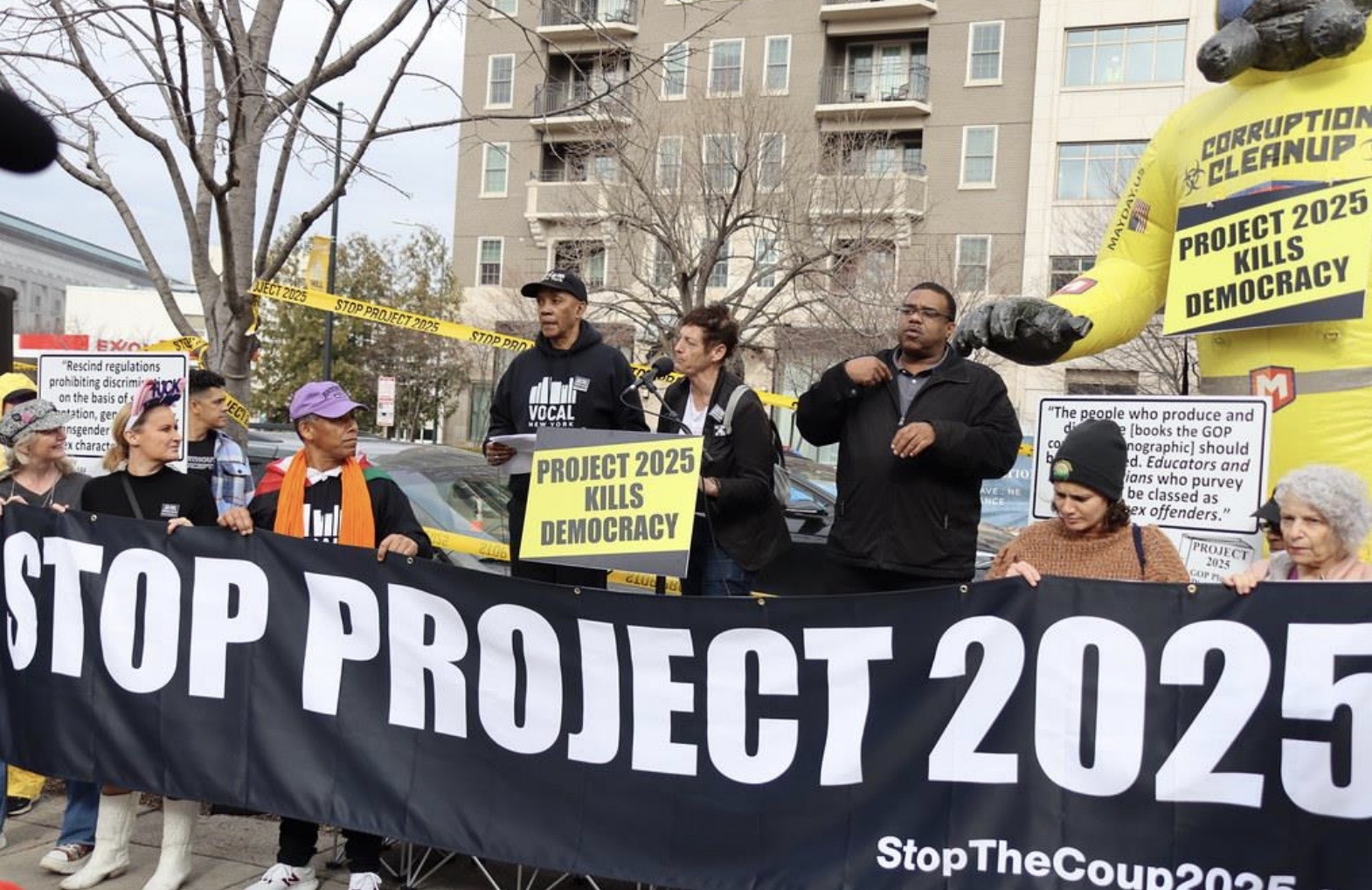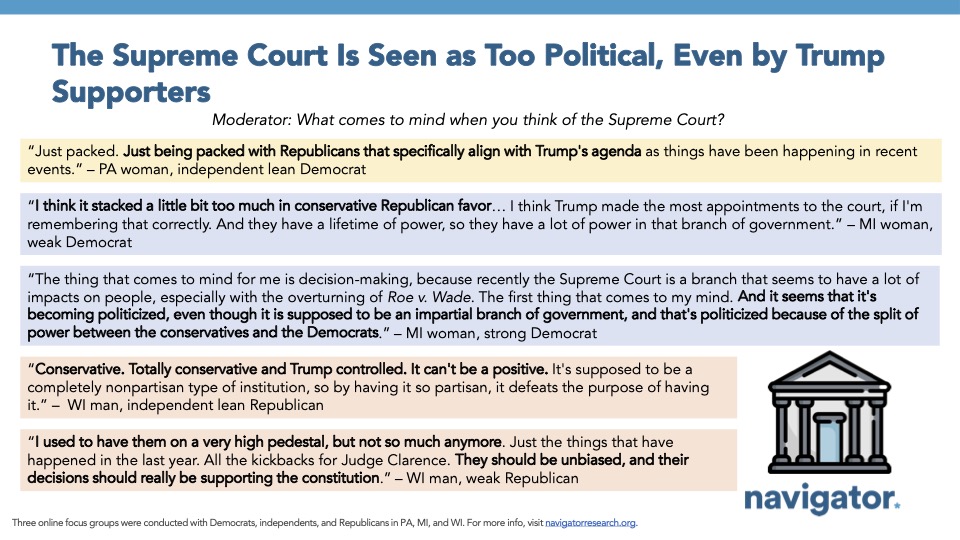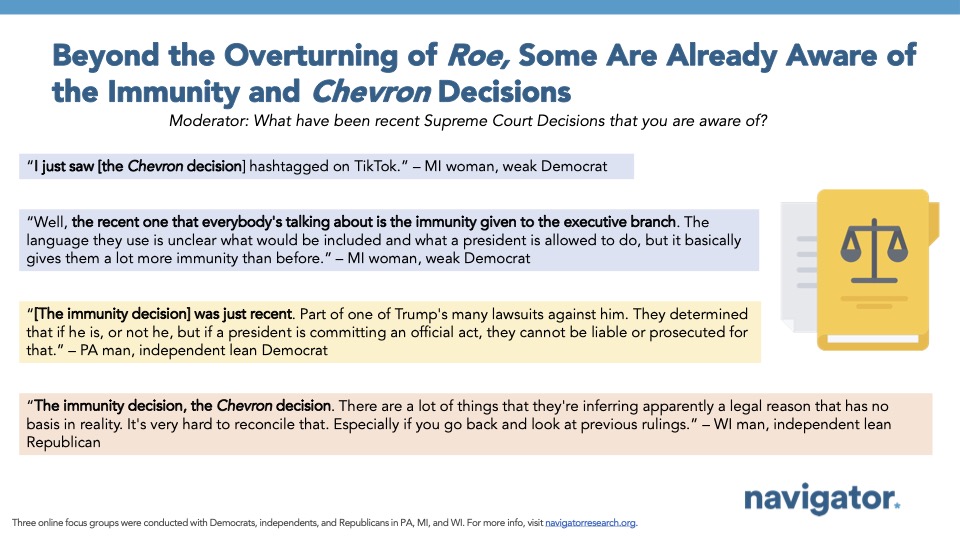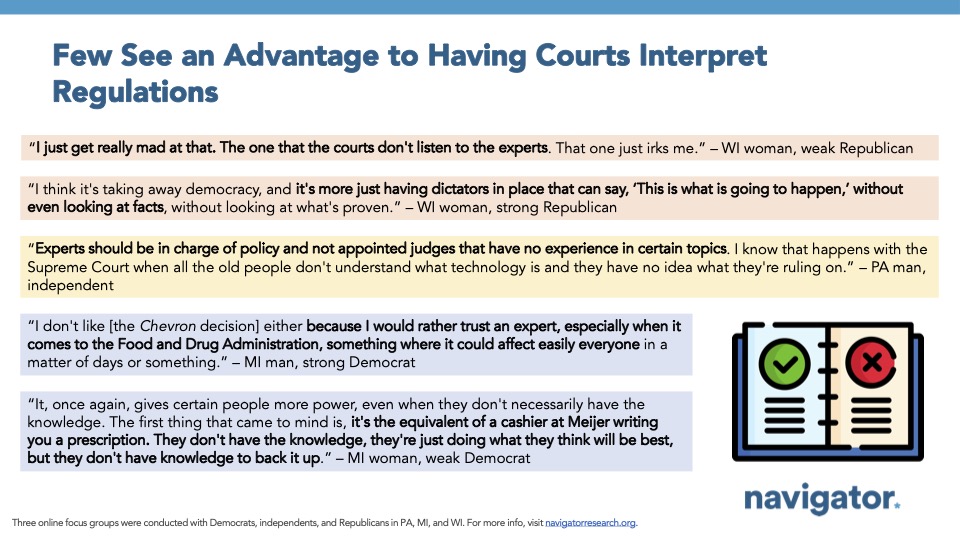Focus Groups: Supreme Court
This Navigator Research report contains findings from focus groups among engaged Democrats under the age of 30 in Michigan, independents in Pennsylvania, and Republicans in Wisconsin on perceptions of the Supreme Court following the end of the term, including views of several consequential decisions and their implications for the future.
Across party lines, participants view the Supreme Court as politically motivated.
Following the end of the term, the Supreme Court continues to be viewed as political. Across party lines, participants see the Court as acting with a political agenda, with one independent in Wisconsin stating: “Conservative. Total conservative and Trump controlled.” An independent in Pennsylvania similarly said: “Just being packed with Republicans that specifically align with Trump’s agenda as things have been happening in recent events.” Many think of the overturning of Roe as an example of the Court’s politicization, including one Democrat in Michigan who said: “The thing that comes to mind for me is decision-making, because recently… with the overturning of Roe v. Wade… it seems that it’s becoming politicized, even though it is supposed to be an impartial branch of government.”
- Presidential immunity comes up as an example of a recent political decision by the Court. One Democrat in Michigan noted: “The recent one that everybody’s talking about is the immunity given to the executive branch. The language they use is unclear what would be included and what a president is allowed to do, but it basically gives them a lot more immunity than before.” Participants were deeply disturbed by this ruling. One Pennsylvania independent said: “I think it’s crazy. I don’t want any president to have that power. I don’t care if they’re Democrat, Republican, Independent, I don’t want anybody to have that power.” Another independent from Pennsylvania stated in disbelief: “Even with the assassination attempt, if that was Joe Biden who commanded it, it would’ve been completely legal and that’s insane.”
Courts having the power to interpret federal regulations instead of agency experts was deeply concerning to participants.
In response to the Court’s decision overturning Chevron deference and allowing courts to interpret regulations rather than agency experts, participants saw the action as curtailing the power of experts. One Democrat in Michigan said: “The thing that actually stood out to me was the Court’s decisions instead of the agency experts for regulations because it seems that that’s something that there’s more power being controlled [by] courts or by government officials than people who actually know what the regulations are. And it makes me worried that the people who are trained in a certain regulation from an agency are not given the power, and that has to be made by the courts. So any regulation could maybe go through without an agency expert.” An independent in Pennsylvania said: “I find that all very concerning. I think it also leaves a lot of power up to judges, which can be very much used to abuse power.” Similarly, a Republican in Wisconsin said: “I think it’s taking away democracy, and it’s more just having dictators in place that can say, this is what is going to happen without even looking at facts, without looking at what’s proven.”
- The idea of taking power from experts was striking to participants, including one Republican in Wisconsin who noted: “A judge is an expert at what a judge is an expert at. A doctor, a lawyer, a counselor, a baseball player. They’re all experts at what they’re experts at. A judge, chances are it doesn’t know the first thing about turning crude oil into gas for our cars. What would make that judge the expert and give him or her the right to say, ‘you know what? This is how we’re now going to move forward, because I say so.’” A Democrat in Michigan similarly said: “…it’s the equivalent of a cashier at Meijer writing you a prescription. They don’t have the knowledge base, they’re just doing what they think will be best, but they don’t have knowledge to back it up.”
About The Study
GBAO conducted three online focus groups July 17, 2024 with Democrats, independents, and Republicans in PA, MI, and WI. Some quotes have been lightly edited for brevity. Qualitative results are not statistically projectable.







